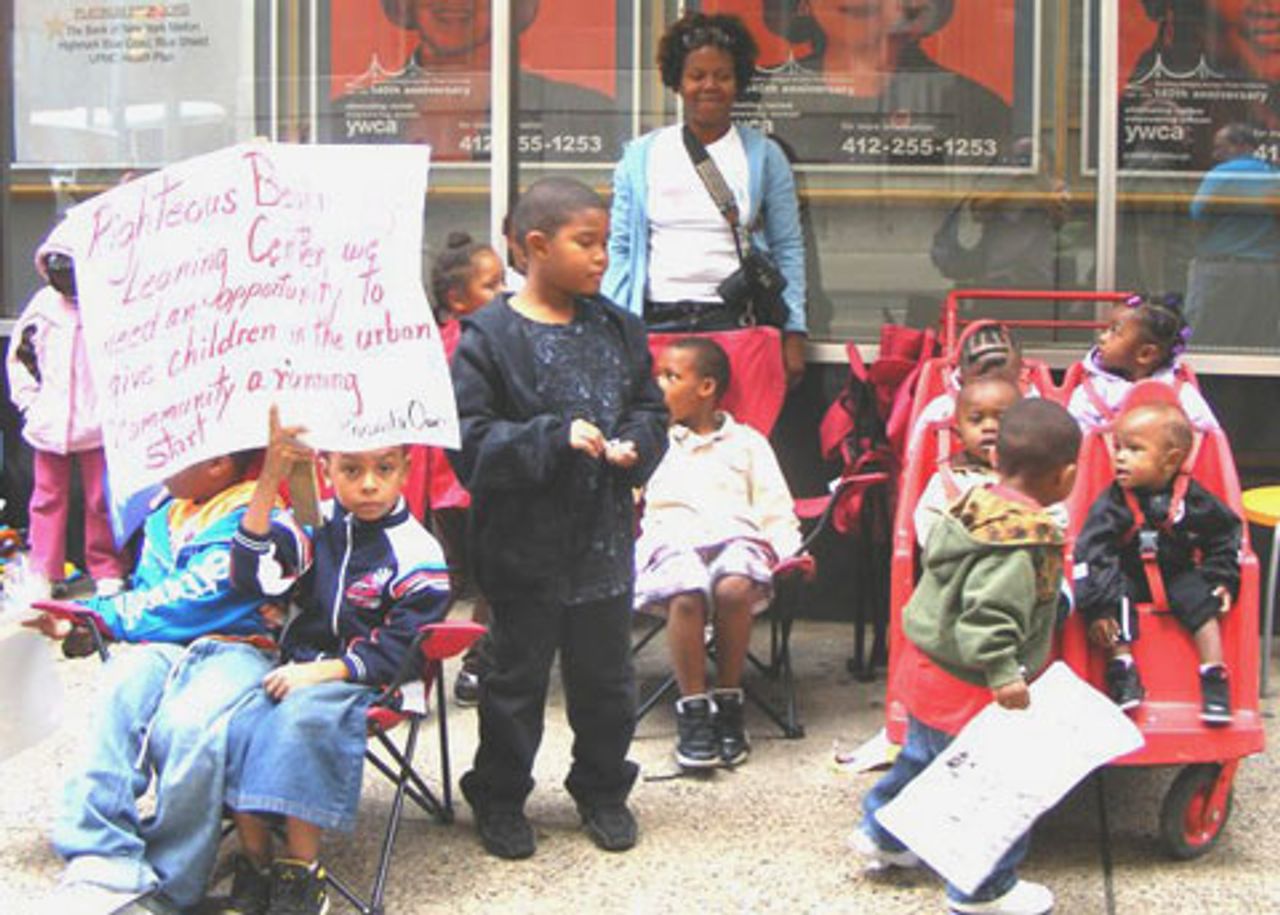Pennsylvania remains the only state without a budget more than two months after the previous budget ended on June 30.
Thousands of agencies, contracted by the state to provide social services, are not being paid. They are instead being forced to lay off workers and reduce or eliminate the services they provide. These agencies provide a whole range of vital social programs, from daycare, preschool and after school for young children to health care and mental health care for veterans and various services to assist the elderly.
County government and associated agencies, which also receive subsidies from the state, have not been paid. Mercer County has forced county workers to take a weeklong furlough and may also implement outright layoffs. Many other county agencies have also been forced to cut back services and lay off workers.
Public schools opened at the end of August and they too are not receiving funds from the state, which provides about one third of public school revenue. Furthermore, many programs are in a kind of fiscal limbo and may be cut when the new budget is passed.
College students, tens of thousands of whom expect to receive grants for tuition and books, are also being affected. While most colleges have not started dropping these students from classes, it has put a strain on many community colleges whose budgets rely mainly on tuition payments.
Libraries, museums and other cultural institutions have also not received their subsidies and are being forced to make cuts in services and lay off workers. Democrats are proposing a 15 percent cut in funding for libraries, while Republicans are calling for as much as a 55 percent cut in funding. The city of Allentown has been forced to close one of its two libraries and other areas have had to cut back hours and services. The Democrats are proposing a 30 percent cut to a statewide library database, while the Republicans are seeking to eliminate all funding for the program.
Last month Democratic Governor Ed Rendell signed a stopgap budget that allowed state workers to be paid and state police and prisons to operate, while almost every other area of state government ground to a halt. Furthermore, on August 28, Rendell laid off over 200 state employees, bringing to more then 1,000 the number of state jobs cut since last year.
Pennsylvania ended the 2008-09 fiscal year with a $1.7 billion deficit. Governor Rendell proposed a $29.1 billion budget that included an income tax increase, while Republicans controlling the State Senate refused to consider a tax increase and instead proposed a $27.1 billion budget with deep cuts in education, childcare and other social services.
Rendell has agreed to drop his income tax increase and accept a budget of about $28 billion, although he has not detailed which programs will be cut. Republican and Democratic lawmakers have met several times to address this and other budget proposals, but have not yet reached an agreement.
Both Democrats and Republicans seek to push the burden of the state financial crisis onto the backs of the working class and the poor. Whichever plan eventually gets passed, the truth of the matter is that much greater cuts in social services and the layoffs of thousands of state and agency employees will result.
The state continues to see a massive drop in income and sales tax receipts, which make up the bulk of the revenue because of cuts to corporate taxes made by both Rendell and previous governors during the past 10 years. For instance, the capital stock and franchise tax has been cut from 11.99 mills to 2.89 mills. Income and sales taxes are both very vulnerable to the recession. During July and August, state revenue was down $159 million, or 4.6 percent, compared to the same two months last year.
In Philadelphia, the largest city in Pennsylvania, Democratic Mayor Michael Nutter has said he will be forced to lay off 3,000 city workers, including 1,000 police officers and firefighters, if the state legislature does not approve a 1 cent increase in sale tax within the city. Mayor Nutter has also said that he will close all libraries and recreation centers and cut garbage collection to only twice a month without the additional tax.
Lawmakers in the state capital have approved the tax increase and are expected to vote on the measure again on Tuesday after an amendment was added that the state would take over Philadelphia’s troubled pension plan, freeze benefits at current levels for current employees and retirees and cut benefits by 25 percent for new hires. The bill would also allow the city to defer $230 million in pension payments to the pension plan, which is already drastically under funded.
In Pittsburgh, childcare providers, parents and children took part in a rally protesting the proposed budget cuts in early childhood education. The state currently supports about 130,000 children in various early childhood and after school-programs while 16,000 other families are currently on waiting lists for childcare.
Shimira Williams, who works at a daycare center, said, “I am here to get the right budget passed for early childhood. Quality childcare is necessary for children to support and enrich their education in underprivileged homes and for parents to maintain their jobs and support themselves.
 Shimira Williams and some of the children
Shimira Williams and some of the children“Our parents would be severely hurt if we were forced to close. We serve a low-income neighborhood. Most of our families are moderate to low income. Without childcare, many of our parents would not be able to go to work. We charge $30 a day or $150 a week. That is a lot of money if you are only making the minimum wage or a little above.
“We have not been paid for July or August and I am told we will not get paid for September on time even if the budget were passed today. The staff is not getting paid and I have paid all the bills through October, so I am hoping to make it till then.
“A lot of centers are closing. We just took back a parent who had left our center when she moved to Bellevue. Her center closed, now she has to drive an extra 30 minutes each way to bring her child to us.”
Janine Thompston is a home childcare provider for six children. “I have not been paid for two months. I have not been able to pay my mortgage and other bills. I am so far behind on my mortgage I don’t know what I will do. I have friends and family who are supporting me, but there is only so far that can go.
“This is unfair. In order for people to go to work they need childcare.”
 Tericka Lane
Tericka LaneTericka Lane is being hurt from both sides. During the day, she works providing childcare and is not getting paid, in the evening she needs childcare for her two children while she goes to school to become a paralegal.
“This is a really big deal. They are passing laws to help the casinos and yet childcare centers are closing. The center where I take my two children has closed and I am not getting paid so I can’t afford to pay anyone, or my bills and out-of-pocket expenses.
“I am not on welfare, I work. But I need help paying for childcare.
“The politicians don’t have any answers for us. They can spend all this money to bail out the banks and car companies, yet they are cutting programs for education, closing schools, not funding daycare centers. This is wrong.
“They should be focused on the youth. They always say that the youth are the future, yet these are the programs that are being cut. They say that they want teenage crime and teenage pregnancy to go down. Then they need more facilities for the youth, not fewer by cutting them.”
